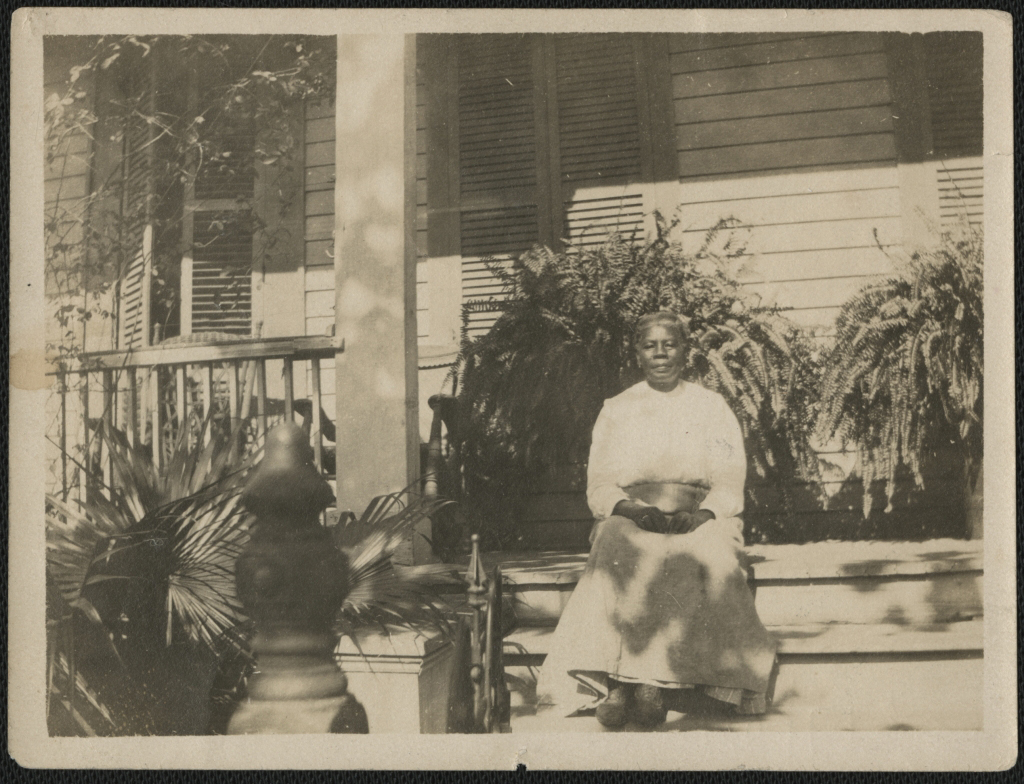Online photo collection documents African-American life
By Melanie Lefkowitz

Hundreds of seldom-seen photographs documenting the journey of African-Americans from the slavery era to the 20th century are now digitized and freely accessible to students and scholars around the world.
The Loewentheil Collection of African-American Photographs, part of Beth and Stephan Loewentheil’s 2012 donation of photography to Cornell University Library, contains a trove of vital information about African-American life, supporting learning, teaching and research across Cornell.
“I am so delighted that this collection is now available online to researchers,” said Cheryl Finley, associate professor of art, who was awarded a grant to support the digitization of this collection through the Grants Program for Digital Collections in Arts and Sciences in 2012. “It is a valuable resource of rare and important 19th- and 20th-century photographs that document, illustrate and chronicle how black people in America saw themselves and were seen by others. Through poses, clothing, hairstyles, settings, props and style, the African-Americans pictured in this collection boast an indomitable spirit and rich cultural heritage.”
Images of key figures in African-American history, arts and civil rights, including Muhammad Ali and Dr. Martin Luther King Jr., as well as unnamed poignant photographs of proud women and men who worked hard to support their families during slavery, Reconstruction, Jim Crow and the Civil Rights Movement are what made this collection worthy of digitizing, Finley said: “Getting images like these out to researchers and curators is more important than ever.”
Though the collection includes historic images of high-profile figures, including photographs of King in a jail cell, most of its images depict the everyday lives of African-Americans. Such photographs, particularly from the early days of photography, are extremely rare. The pictures reveal volumes about black life and struggles, and stand to impact the fields of African-American studies, American history, art history and the history of photography, among other disciplines.
“This collection is a bridge that documents African-Americans’ movement from the worst days of American history into the brighter part of the 20th century, when many of our cultural icons were the same people who had been so viciously oppressed,” said Stephan Loewentheil, J.D. ’75. “Digitization allows us to bring images that heretofore were rare, and the province of only expert scholars, to students of all abilities and all ages and all locations.”

The photographs include tintypes of freed slaves and personal family photo albums, dating from the 1850s to the mid-20th century. They encompass daguerreotypes, ambrotypes, carte-de-visite photographs, albumen prints, Polaroids and more.
The photographs complement several other collections in the Division of Rare and Manuscript Collections, from its Civil War-era, abolitionist and Abraham Lincoln materials to the Cornell Hip Hop Collection.
“This collection is an important piece in our broader effort to document the lives of Americans in the 19th and 20th centuries, particularly those from underrepresented communities,” said Katherine Reagan, curator of rare books and manuscripts. “The range, scope, time periods and different activities depicted in these photographs fill in vital details of our historical record, and will support teaching and research on campus and around the world.”
Melanie Lefkowitz is a writer for Cornell University Library.
Media Contact
Get Cornell news delivered right to your inbox.
Subscribe